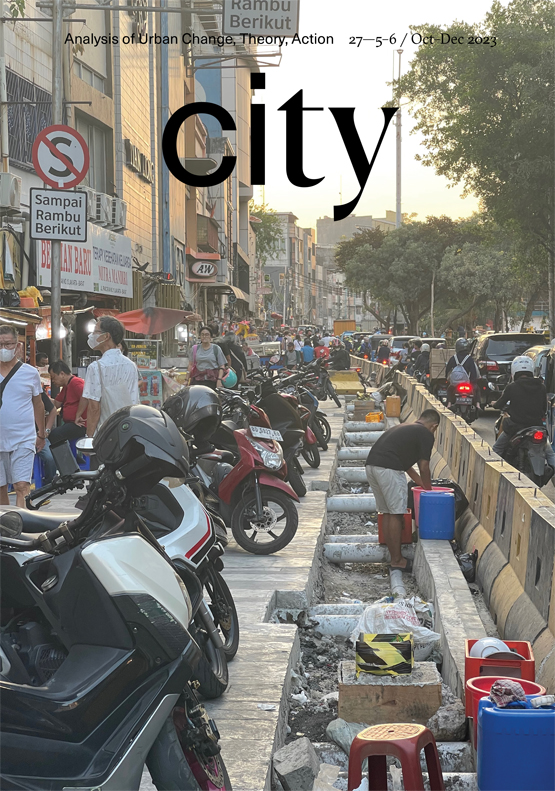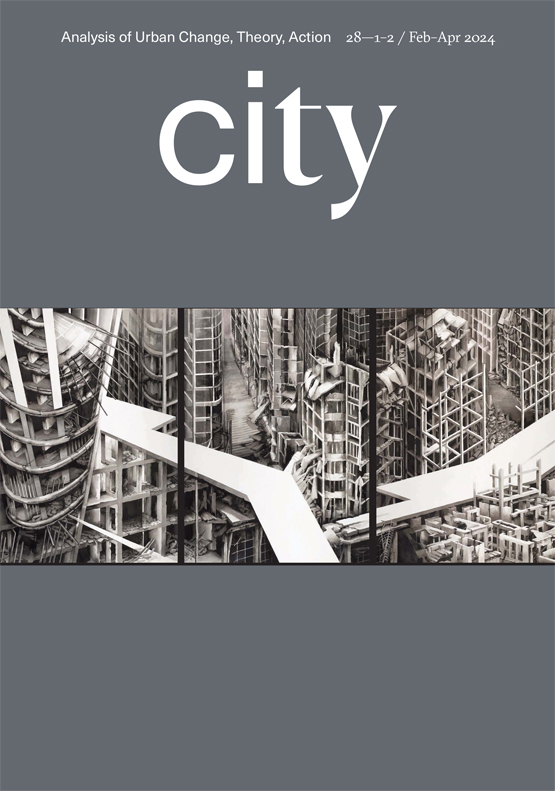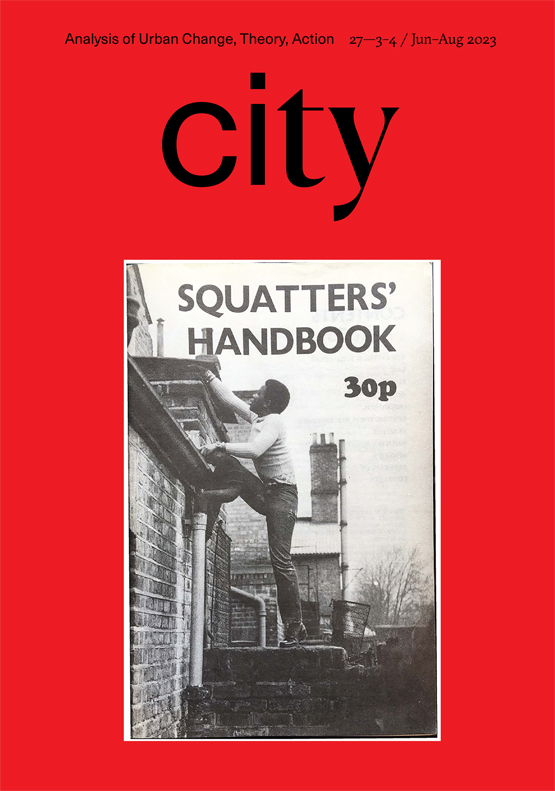founding editor: bob caterrall
editor: city editors
editorial: pluriversal urbanisms
Ulises Moreno-Tabarez, Tatiana Acevedo-Guerrero, Lindsay Sawyer, David Madden, Anna Richter, Yimin Zhao, Hanna Baumann & Andrea Gibbons
CITY is opening up a platform for research and theory from and about places and topics that are, and researchers who are, under- and mis-represented in urban studies journals. For want of a satisfying and even joyful term that doesn’t homogenise complexity or have an implied negative counterpart (e.g. “Global South”; “majority world”), we are using the placeholder term of pluriversal urbanisms. Here we draw on recent works by Escobar (Citation2018) and Blaser and de la Cadena (Citation2018) drawing attention to alterity and to the ways in which it can be nourished. These works stay with the principles of the Zapatista thought: “We want a world where many worlds fit.” By using this term we pay attention to “the difference that all marginalised and subaltern groups have to live with day in and day out” (Escobar Citation2018, xvi), while at the same time striving for social justice and radical equality of all beings. Pluriversal urbanisms then encompass “multiple elsewheres” (Gandy Citation2022), the abundance of urban experiences, and make calls for reimagining and reconstructing local worlds.
We understand pluriversal urbanisms, as with all terms, to be constantly open to revision and we hope your submissions will challenge the available terminology and propose new vocabularies. We acknowledge the limitations of languages, in plural, in encapsulating the depth of human experiences, yet also recognise the spatial dimensions of language; its geographical, historical, and consequently political facets bearing material significance (Moreno-Tabarez Citation2023; Sawyer Citation2022; Zhao Citation2020). Our endeavour with this initiative is to traverse the deficiencies of language, its fissures, entrapments, and beyond, to envisage emancipatory spacetimes: urban pasts, presents, and futures intertwined with justice, for justice in urban spacetimes is the pressing narrative of the now. Amidst this exigency, we discern that the language representing alterity is a snare, a cycle of inherited hierarchies, and we find solace in poetry as a mechanism to dismantle these power structures (Glissant Citation1997). With such a poetic urbanism lens, among many other possible ways, we aim to underline the specific politics the term ‘pluriversal urbanism’ brings to the fore.
Segueing into the realm of ‘pluriversal urbanisms,’ we unfurl a tapestry of critical dialogues and interrogations. Once again, these are starting points to spark deeper debates. Central among these is the narrative of urbanism intricately entwined with the legacy of colonialism, a legacy that is still chained against the grim past and present of slavery. The scholars entrenched in pluriversal urbanisms discourse critique the prevailing northwestern urbanism model for its imbrication in colonial and enslavement principles, such as forced migration, resource and labour exploitation, and the effacement of Indigenous and other non-Western ways of living. They champion a pluriversal lens on urbanism that acknowledges the rich tapestry of urban experiences and knowledges, steadfastly centering the rights and needs of marginalised groups and cohorts.
click here to read the full editorial.





